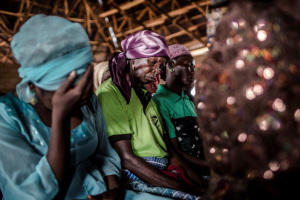Amanda Knox Trial Verdict Latest News - Appeal Decision Due From Court of Cassation in Meredith Kercher Murder Case

Amanda Knox will be anxiously awaiting a verdict from Italy's highest court this week in the 2007 murder case of British exchange student Meredith Kercher. A verdict is scheduled for Friday.
Italy's top court is scheduled to issue a ruling on whether they uphold the convictions of American citizen, Amanda Knox, and Italian native, Raffaele Sollecito.
The former couple were initially found guilty in the case, however, that initial conviction was overturned on appeal after the pair had spent four years in an Italian prison.
Knox returned to the United States as soon as she was freed, however, the Italian criminal system allowed the prosecution to bring the case again, and on that hearing the pair were again found guilty.
Things have now moved up to Italy's highest court, the Court of Cassation, which will decide to either uphold the conviction, overturn it, or it could order the case to be reheard at the lower court.
Experts have stated that it is unusual, although not unheard of, for the Court of Cassation to overturn the last decision when a case comes to them, however, such is the controversy surrounding the Kercher murder case, that many Knox and Sollecito supporters hold out strong hope that their convictions will once again be thrown out.
If the court upholds the convictions, Sollecito will be imprisoned immediately, however, Knox remains in the United States, and it is likely that Italy - which has an extradition agreement with the United States - would apply for the U.S. to hand her over.
If Knox's guilty conviction is upheld, it is extremely likely that her legal team will apply to the European Court and attempt to get the conviction overturned on human rights grounds.
One man, Rudy Hermann Guede, born in the Ivory Coast, has already been convicted and pleaded guilty to the murder. He, however, opted for a fast-track trial and struck a deal with prosecutors to have his conviction reduced to 16 years.
Early in the investigation process into Kercher's murder, local Italian police managed to extract an admission of guilt from Knox, however, she has since retracted that admission, and has claimed that she gave it in exhaustion and confusion after long and aggressive questioning from Italian police. She claims she was shouted at, hit, and convinced not to have her own lawyer for the inquisition at the time, and was under extreme stress and duress when she gave her admission.
International interrogation experts have weighed in and analyzed the claims and have stated that it is entirely possible that someone under the pressure Knox was placed under would have made such an admission. They have claimed that Knox's description of events were in line with well-known interrogation techniques used in the past to coerce admission from suspects. However, those techniques have been widely condemned and are now no longer widely used as it has been found that in many cases, when a subject is placed under extreme conditions, many would say anything they believe interrogators want to hear to make the inquisition to stop.
Numerous international DNA experts have also condemned the reliance on the convictions on DNA evidence found on Kercher's bra clasp and a knife recovered from Sollecito's kitchen.
The bra clasp for instance was not recovered by prosecutors for 46 days after the killing, and had been moved since the time of the murder, presumably by investigators. That, along with the relatively tiny amount of DNA found on the clasp, has led many to believe the DNA evidence is unreliable and has a very high probability of being the result of DNA contamination.
The knife having Knox's DNA on the handle has also been rebuked as Knox clearly had used the knife in Sollecito's apartment for cooking, giving an obvious explanation for why her DNA was on the knife. There was also no blood evidence, or Kercher DNA, on the knife, making many believe there is a real chance the knife is completely unrelated to the case.
The courts that have convicted Knox and Sollecito have heavily leaned on the side that it is up to the defense team to prove that the DNA evidence was a result of contamination - something many international experts have said is impossible. The court that overturned the conviction, meanwhile, leaned heavily on the side that prosecutors must prove that no contamination had occurred. There is little documentation of the processes Italian investigators used to touch evidence, transport evidence, and how the bra clasp had moved from its initial position over the 46 days it lay in Kercher's bedroom following the murder.




























